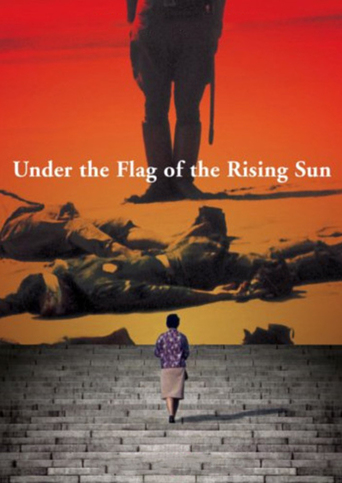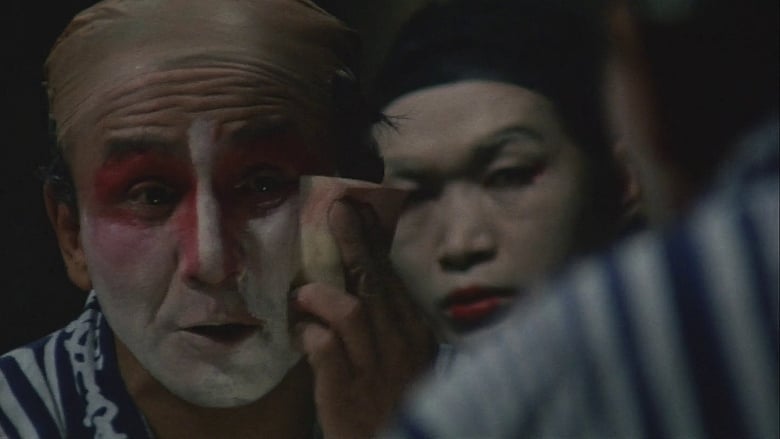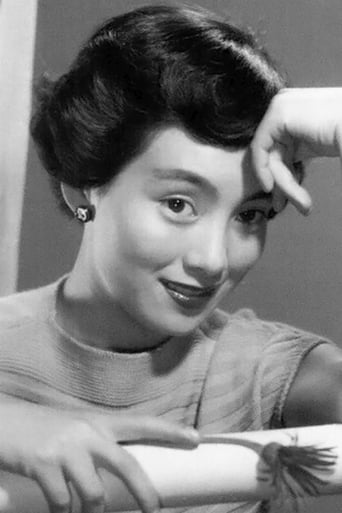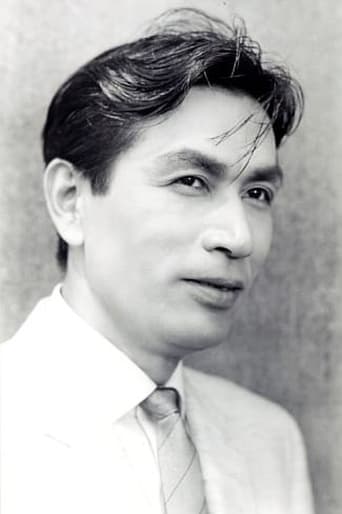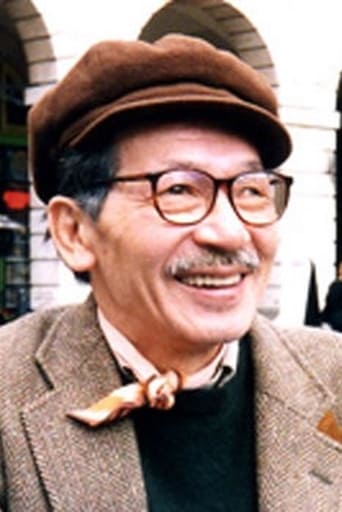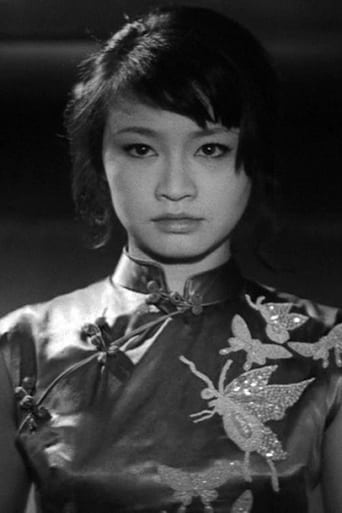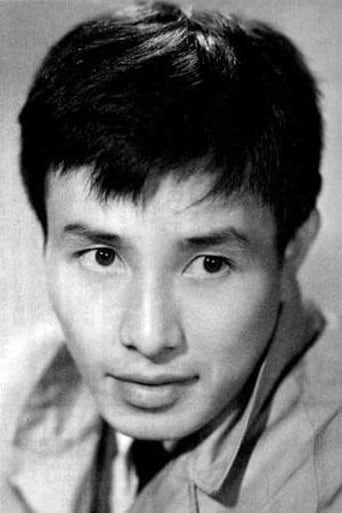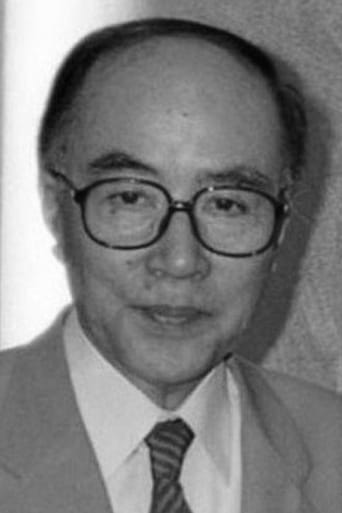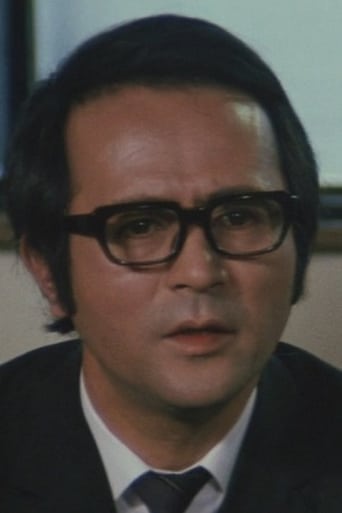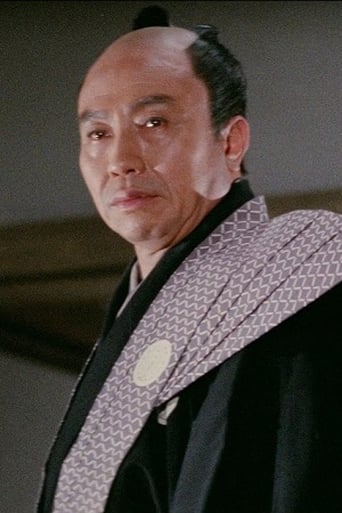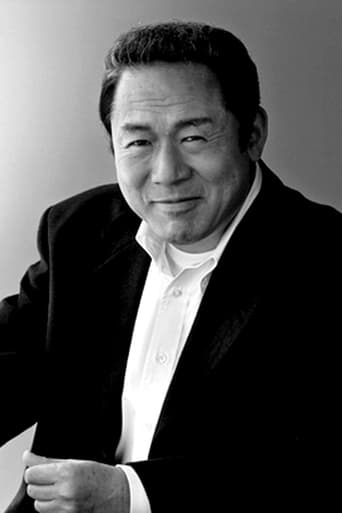A war widow determined to clear the name of her disgraced husband, who was court-martialed for desertion and executed. Official records have been destroyed, and the ministry that distributes benefits continues to deny her a pension. Twenty-six years after the war, she seeks out four survivors of her husband's garrison. Each tells a dramatically different story about her husband's conduct, but she is determined to learn the truth.


Reviews
Under the Flag of the Rising Sun is one of those Japanese movies about WW2 that harshly critique militarism, war atrocities and the mindset of the people involved in it. It was produced independently by Fukasaku and based on the novel by Shoji Yuki, and tells the story of a widow trying to piece together the puzzle of her soldier husband's death on the front.The filming style here is really something to behold. There are many war flashbacks that alternate from color to black and white, normal image to inverted colors, still stock images to live action scenes that often accentuate their shots as still pictures themselves and slow motion scenes of excessive violence among soldiers. Most of this is set to a dramatic orchestral soundtrack, often combined with Dutch angles and Fukasaku's trademark shaky cam. Connecting flashbacks with present time is also common, like in the scene where the retired veteran takes a walk with his granddaughter, and meets two characters, one in the flashback, the other in present time, the change between two times being accompanied by the change from monochrome to color.The acting is very believable and adds to the strong atmosphere of the movie (fun fact - this is the second time actor Noboru Mitani has to play a poor man living in a garbage-filled shanty, the first time is in Dodes'ka-den). Like most post-war Japanese films that tell about the war itself, it's very solemn, dark and with a negative portrayal of, name it, the government, the Emperor, the soldiers, the post-war society refusing to care about the veterans, and of the horrors of war in general.
What's the truth,and what does it bring us ? That's the question what carries this movie up to a level of masterpiece. I will not say that this IS a masterpiece since it also has it flaws, but to come to the plot of this movie, it is about a war widow (Sachiko Hidari) which seeks out the ministry of welfare, in order to clear her late husbands name (who was a sergeant in the war)from the name of "desertor". For almost 20 years she is trying to get some answer on her late husbands strange death, and in 1971, when the head of the department of ministry of Welfare changes, she tries it again. (like every year) The man, just like his predecessors, can't clear her husbands name, however feeling sorry for her, gives her a list of 4 names who didn't respond on the inquiry of her husbands death, so she can seek out the truth herself.This is where the problem starts, for all 4 men ( 1 first class private, a corporal, a military police officer, and a 2nd grade lieutenant) tell her 4 different story's about her late husbands death. The only questions is who is right, and who lies, and as last who simply doesn't know. All the men state at first (which is remarkable) that they simply don't recall much from that time, and apart from from that the military records are not complete, so the widow will never have any prove of the story on how her husband died. This is an interesting factor which shows that even in this movie, Japan still can not deal with it's history.Back to the movie itself and the review. Sachiko Hidari who plays the widow does a good job on the leading lady here, for her desperation doesn't seem unreal, however sometimes a little overacted. In my opinion it is Tetsuro Tamba who plays the role of one of the returned soldiers from the war who deserves the most credit. He plays the first soldier (private first class) who lives in a dump, between tramps an beggars, and his image of this soldiers who cannibalized on his fellow soldiers is so haunting that it doesn't leave the mind. After his deed of feeding on their flesh because of starvation, he returns in the slums of Tokyo feeling secure, among the chaos. But when Japan cleans up he feels left behind, he feels still dirty (and guilty) and decides to live among the slums in a back alley ghetto dump (very ironic as a PIG farmer). Of the four war witnesses, he is the strongest representation of the carnage pf chaos of it, but that doesn't mean the other 3 are just loose sand. The power of this picture lies in the story's of these 4 men who will tell you about the horrors of that war.Fukasaku Kinji (Battle Royal, the Geisha House, Fall Guy) has made a very interesting documentary of war, crafted in the form of a motion picture. The film is in color but the flashbacks upon what happened to Sachiko Hidari husband are all in monochrome black and white (except for the strongest shots which switch over into color. Together with some freezing time frames, and b/w picture of the war and holocaust, this picture is trying to make clear that war IS nothing but chaos. Fukasaku's direction is good, however, as said, he is victimizing the wrong group in my eyes. I is understandable as Japanese that he does this, but it doesn't make it right. I don't want to me a moralist, but this is something that Japans just keeps denying (and it affects me for my roots are German, and we confessed to all of the war crimes, but through the incident with the atomic bomb, Japan got away with the victim label) Back to the theme, the pictures of holocaust don't shock anymore, as much as they might have in 1972. (for all those who have seen the war pictures and tapes of Europe from the second world war), but still they leave behind a strong impression on how brutal, and more important how REAL this was. This isn't fiction, it is very much real, and there is still a rather unbelief to what humans are capable of. This films doesn't deny anything from it's image that is inhuman. it shows you the torture (although only of Japanese people, there is only 1 foreigner that get's killed here openly before the camera) of soldiers, the cannibalism, the vermin, the blood lust of officers, the madness, and the chaotic structure. What is left behind are the feeling of fear, you can see it in all the 4 men who are left behind to tell the tale of it.This movie is not an action flick in the sense of "saving private Ryan" or "Pearl Harbour". This is a slow (or more slower) movie that has it's power in the story it has to say. The camera actions (the image)of the picture is not that new or uncommon, but it hits the nerve of the open wound. To be more precise the story fits the image that Fukasaku shows you.What also was a relieve that this picture didn't care much for heroism that Hollywood filmmakers give their pieces a lot of times, no it's shows us how low people can get if it comes to survive. For anyone who goes beyond Hollywood cinema joy, and a nice night at the movies, an interesting piece to watch, and if it was only to hear the story from A. the Japanese side, and B. the hear a second world war tale which isn't about Nazis Europe, Americans or Germans.
Searing indictment of war and the individuals discredited in its aftermath. Directed by the masterful Kinji Fukasaku, it is a harsh, bleak work that uses monochrome flashbacks with occasional explosions of color, war photographs, and grim narration to tell a terrible tale.Sachiko Hidari, a war widow, has spent twenty-six years searching for the truth about her husband's death. Was he executed? Was he a deserter? Was he a hero? As the government adheres to an official, flawed version of events, the stubborn woman seeks her own answers by speaking to the men who served with her husband. The stories told by these damaged soldiers comprise the bulk of the movie and accounts are complicated by each man's "truth".Exceptionally well acted and directed with a savage determination to depict the insanity of war in its rawest state, this is surely one of Fukasaku's greatest achievements and certainly one of the most honest portraits of homosapien behavior ever branded to celluloid.
I'm a fan of Fukasaku's gritty doomed gangster movies, and have come to expect a harrowing exposition of human frailty and self destruction, usually at a very personal level. However, this movie plays out on a much grander scale as it sets about exploring the nature of nationalism, militarism, obedience, subjective reality, repressed memory, and guilt. I'm hard pressed to think of a western movie that digs so deeply into the despair of war widows, or examines their feelings in such minute detail. Technically it's almost a documentary, but personalised by the heroine's relentless quest for the truth. Far from being a glorious affair full of grand heroism and precision munitions, war is a filthy business conducted at the sharp end by people who have little or nothing to gain by it. At the blunt end, the politicians and generals eat well and live a life of whimsical luxury while their forces starve and die brutally in foul conditions. Odd that so few filmmakers choose to explore the madness that sends millions to their death for overweening greed, imperial insanity, or even a bare faced lie. The Blue Max, Dr. Strangelove, and Oh What a Lovely War, amongst others, have examined the glib lunacy inherent in the equation, but Fukasaku's movie is all the more poignant for its protagonist's middle aged ordinariness. If someone tells you that Battle Royale is Fukasaku's finest hour, just ask them if they've seen this movie. It's not "easy" to watch, but it's educational and moving. Try it with rice instead of popcorn.
